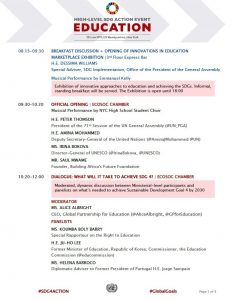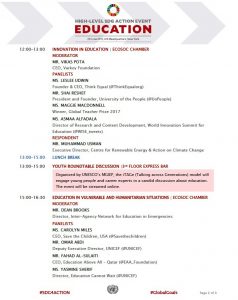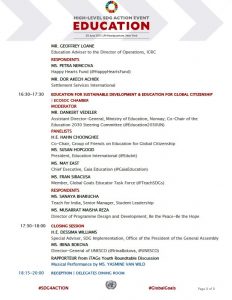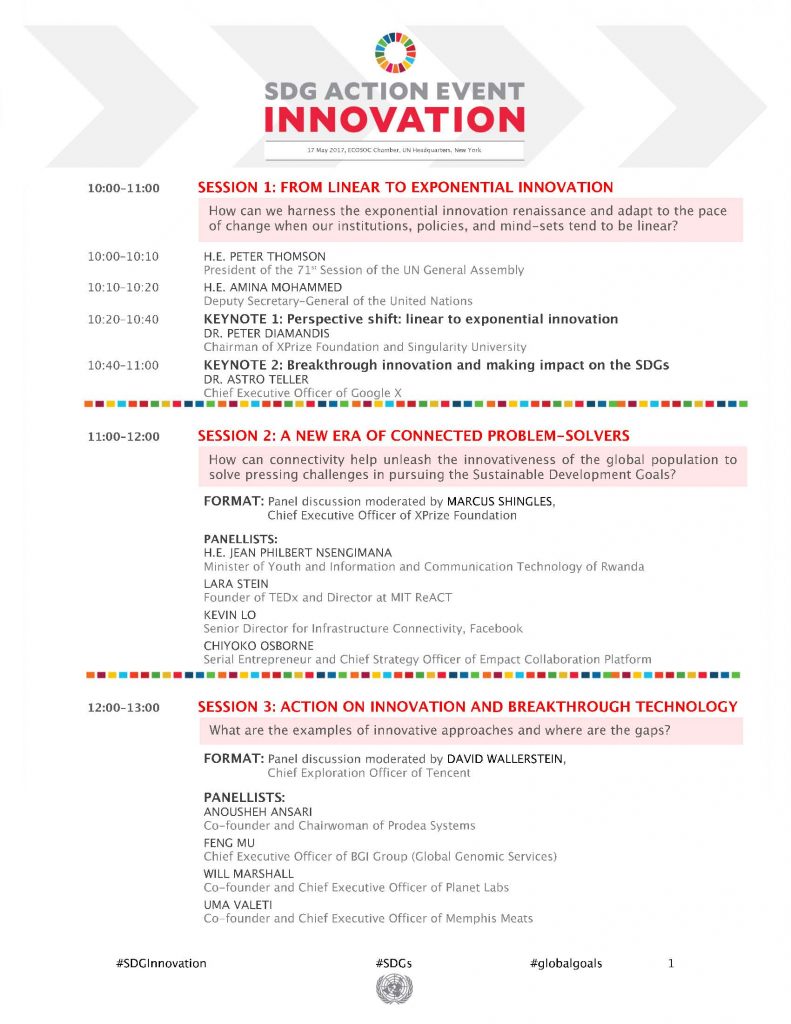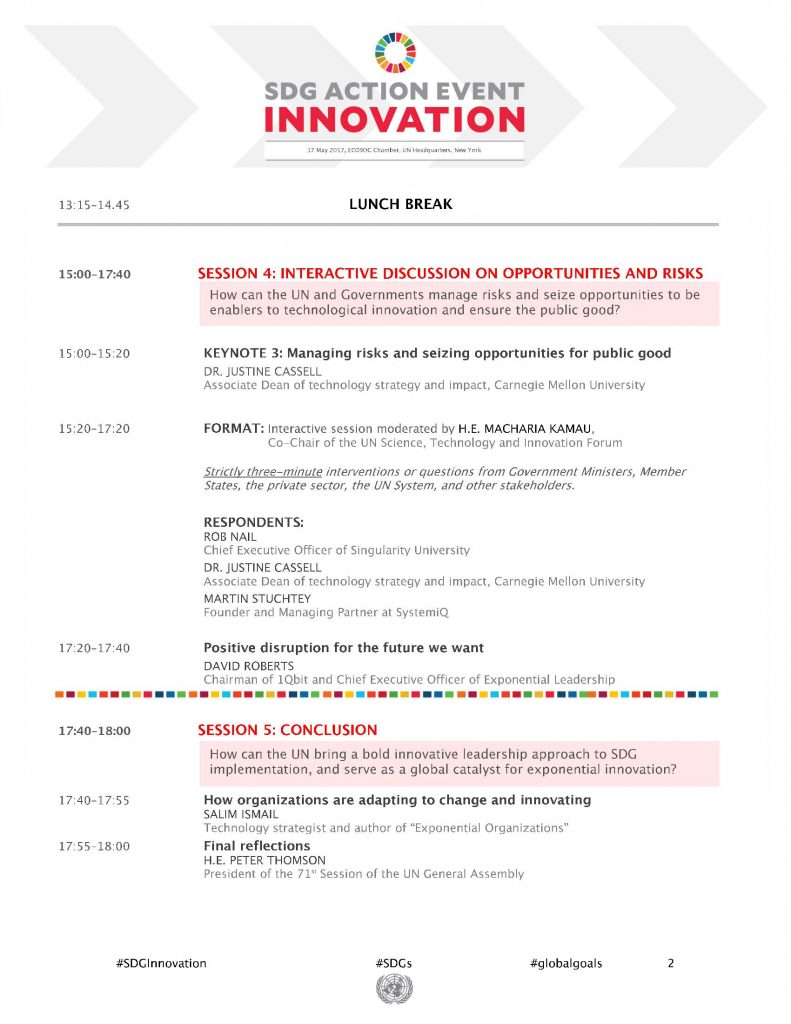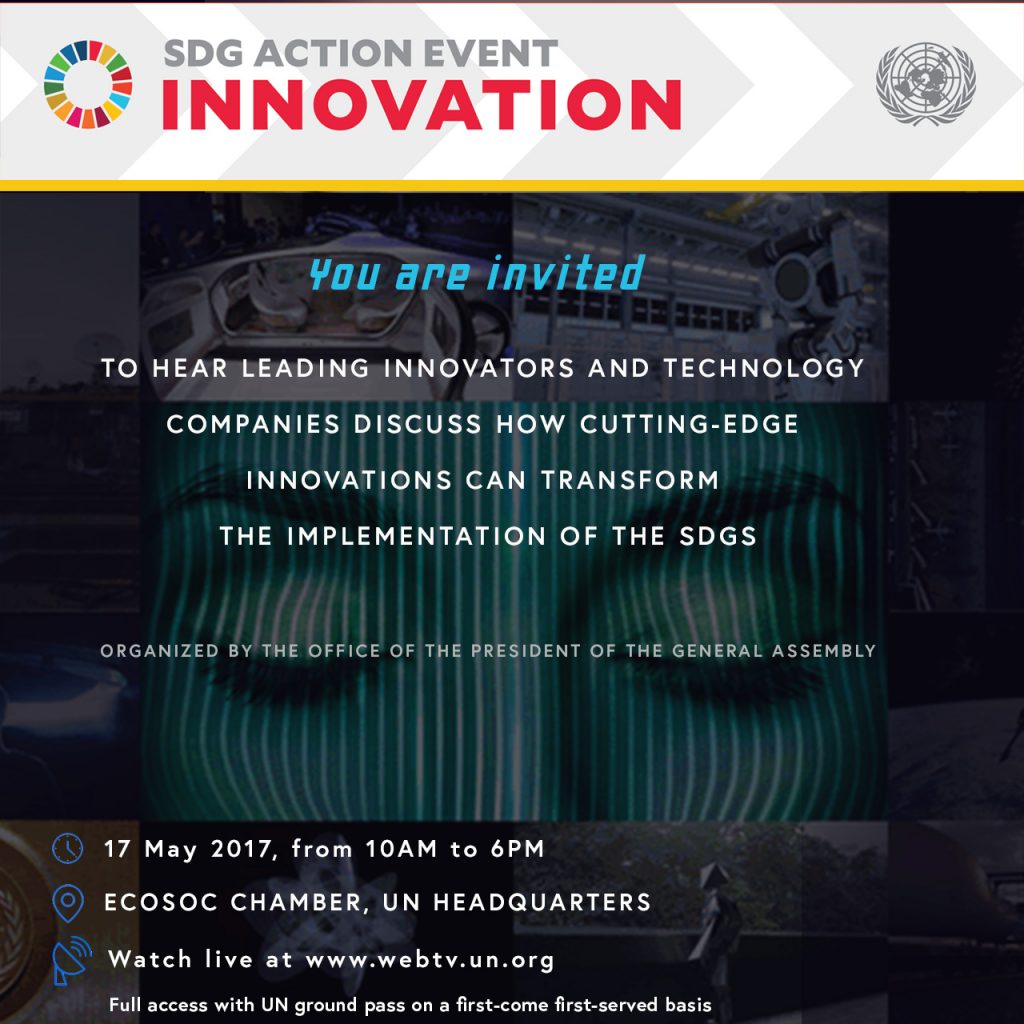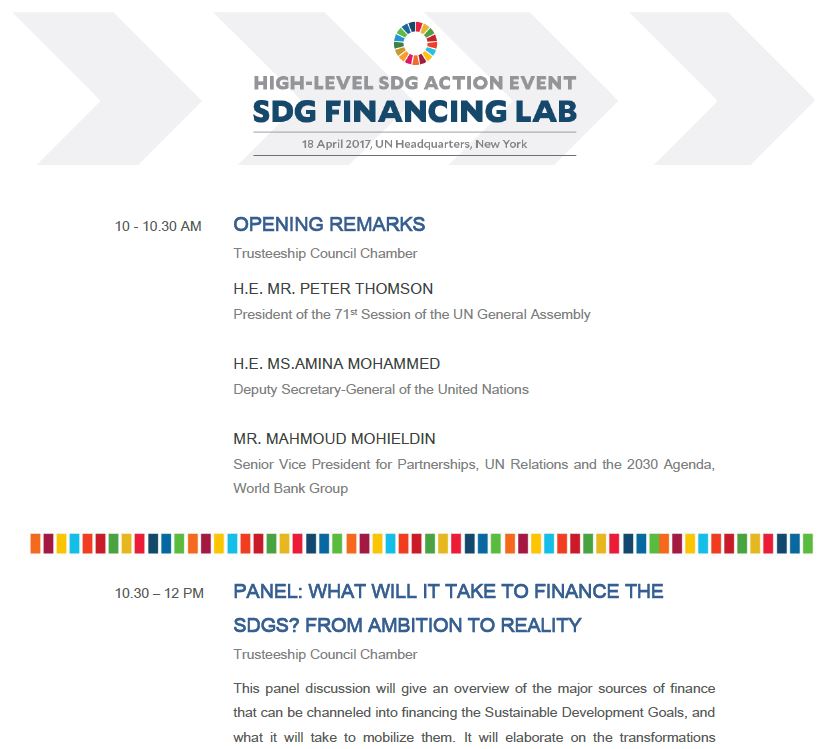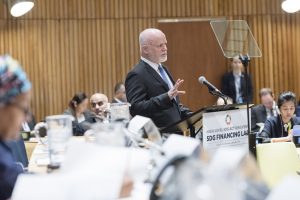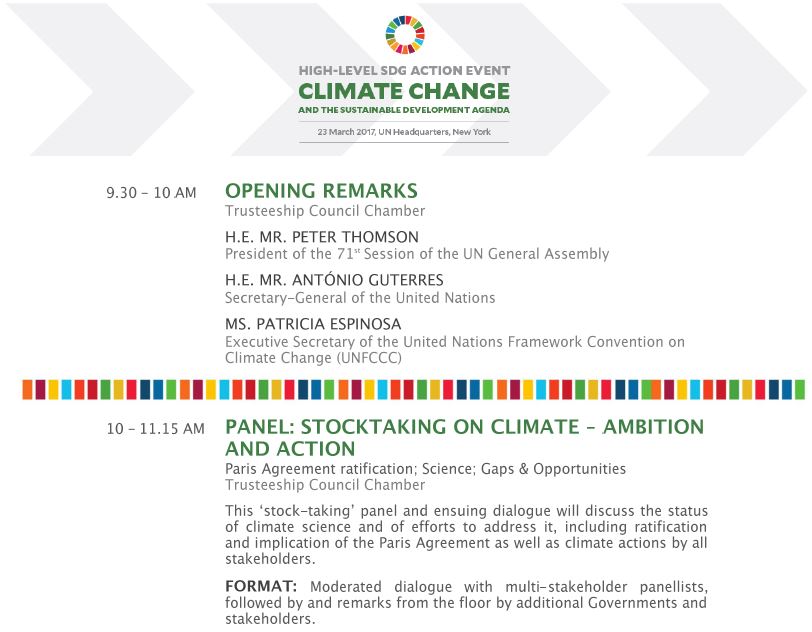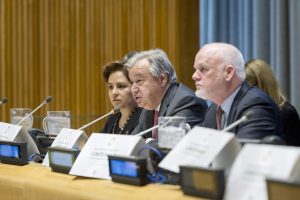At the outset of the 71st session of the General Assembly, the President of the General Assembly, Peter Thomson, pledged to dedicate the session to creating a push for momentum on implementation of the Sustainable Development Goals. He also pledged to report back to the Member States at the end of the session on progress made.
Therefore, on 8 September 2017, President Thomson, will convene an informal meeting of the General Assembly focussed on the status of SDG implementation in general and the outcomes and conclusions of his strategy in particular.
OBJECTIVES
The objectives of the meeting are:
- To take stock of the progress made in broader SDG implementation efforts undertaken during the course of the 71st session, and to provide Member States the opportunity to exchange views and reflect on the results achieved.
- To provide an overview of the overall progress and achievements by the UN Development System, World Bank Group, IMP and others in response to the SDGs. •
- To address how collaborative platforms can more effectively implement and accelerate the delivery of the SDGs through global, regional and country initiatives
- To outline the case for more and better financing to achieve SDG 4, through domestic resource mobilization, bilateral aid and multilateral efforts as well as strong political will and good policies.
FORMAT
The meeting will consist of an opening segment and an interactive panel discussion during which the moderator will engage Member States and other stakeholders so as to ensure that the widest range of views possible are shared. The meeting will take place in the Trusteeship Council Chamber from 10am – 1 pm.
Senior leadership from both the United Nations and the Bretton Woods institutions is invited to participate.



